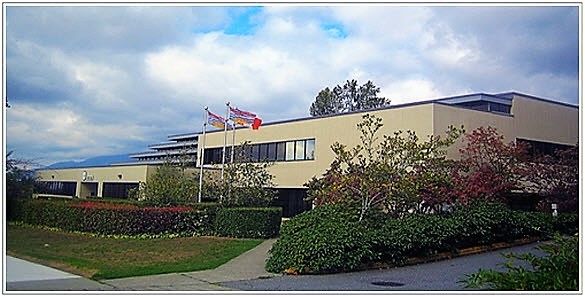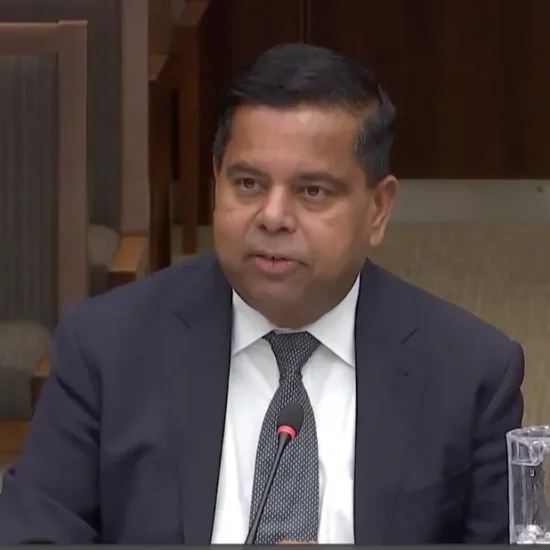
Bob Mackin
A Crown prosecutor asked a Provincial Court judge in North Vancouver on June 8 to send a former Canadian national women’s team and Vancouver Whitecaps’ coach to jail for two years less a day.

Bob Birarda in 2005 (CSA)
Robert Steven (Bob) Birarda, 55, pleaded guilty in February to three counts of sexual assault and one count of touching a young person for sexual purpose.
At the beginning of the sentencing hearing, prosecutor Linda Ostry also asked Judge Deanna Gaffar to put Birarda on probation for three years, entered for life in the sexual offender registry, provide a DNA sample and be banned for 10 years from owning firearms.
Ostry described how Birarda used his power as a coach and mentor to groom each of his four victims and manipulated and exploited their vulnerability for his own satisfaction. She said he left each of them emotionally scarred, detached from their families and friends, and the game they loved to play.
“These were young women who did have aspirations in that world, and we see from the victim impact statement, that it became difficult and ultimately impossible for them to continue on in that world,” Ostry told the court.
Birarda was formally charged in December 2020 with nine offences in Burnaby, North Vancouver and West Vancouver stemming from historical sexual offences between 1988 and 1990, 1995 and 2006 to 2008. A tenth charge was added, but six were dropped under a plea bargain. The court dates were repeatedly postponed throughout 2021 due to the pandemic, scheduling conflicts and negotiations between lawyers.
Names of the victims are covered by a publication ban, but Ostry recounted each of the crimes Birarda committed in the statement of facts agreed with Birarda’s lawyer, William Smart.
Ostry described the personal circumstances of each of the four victims and how Birarda groomed them. One of the victims told police that “she feared she could lose opportunities to continue in soccer if she challenged him.”
Another victim described how, instead of Birarda taking her to a doctor after a minor car crash in January 1995, he took her back to his basement suite and gave her an unwanted massage.

CSA and Whitecaps
“She stated to police that she felt trapped, like she ‘had no option to leave’,” Ostry said.
Another said after a game in 1990 in Burnaby, she was alone with Birarda in the middle of the pitch where he suddenly took her in his arms, kissed her passionately and intimately with his tongue. She pulled away, but Birarda said he wanted to have sex with her right there, in the centre of the field. She was scared and told him he should do that with his wife. The victim broke away from Birarda and waited in her car, “shaking, trying to calm down.”
Shen went to the team’s pool party feeling exposed and vulnerable, wanting to tell somebody, but didn’t know how to begin.
Ostry said Birarda referred to another victim player’s upcoming 18th birthday as “e-day” or ecstasy day and openly fantasized about taking her to Paris for sex. The court heard that she began wearing baggy clothes to practice and asked Birarda if their relationship could return to that of “player-coach.”
That player and her parents complained in 2008 to West Vancouver Police Department and provided copies of email, in which Birarda took an aggressive, dominating tone. No charges were recommended, but in October of 2008, both the Whitecaps and Canadian Soccer Association announced that they mutually split with Birarda “in the best interest of both parties.” Neither the Whitecaps nor CSA mentioned any alleged misconduct in that 2008 media announcement, which happened after they hired a lawyer to investigate.
Birarda was not supposed to return to coaching girls’ youth soccer. But, in February 2019, former Whitecap and national team player Ciara McCormack revealed that he was coaching Coastal FC in South Surrey. In a viral blog post, McCormack described how Whitecaps president Bob Lenarduzzi breached her confidence in 2007 when she complained to him about Birarda’s bullying and harassment.
A dozen players from the 2008 Whitecaps and national team issued a public statement, alleging “incidents of abuse, manipulation, or inappropriate behaviour” by Birarda in 2007 and 2008. It sparked the Vancouver Police to investigate. North Vancouver RCMP eventually assumed the file.

North Vancouver Provincial Court (B.C. Courthouse Libraries)
Early in the 2019 Major League Soccer season, Whitecaps supporters grew unhappy with the team’s response to the scandal and organized match boycotts and first half walkouts at Major League Soccer games in B.C. Place. Owners Greg Kerfoot and Jeff Mallett eventually apologized to the players and admitted that Birarda’s contract was cancelled in 2008 due to sexually inappropriate text messages with a player, contrary to policies of both the club and national association.
They ordered an internal review by a Toronto law firm. In August 2019, Lenarduzzi was demoted from president to club liaison.
A pre-sentencing expert report on Birarda said he acknowledged the harm he did to his victims and that he had experienced anxiety, depression and thoughts of suicide. He was briefly hospitalized and sought counselling and medication, but has not been treated for his sexual offences.
Smart did not have a chance to address the judge until the end of the day, so the hearing will continue on a date to be determined.
He said the author of a psychological report on Birarda misunderstood some facts and he would present letters of support from young women that Birarda coached since 2008.
“My submission that he doesn’t pose a risk in the future, and he has, over the last 14 years effectively rehabilitated himself,” Smart said.
Birarda coached the Whitecaps women’s team to the 2006 W-League championship, missed the 2007 playoffs and advanced to the conference finals in 2008. He headed the under-20 national women’s team and assisted on Canada’s team that lost on penalty kicks to the U.S. in the quarter-finals of the Beijing 2008 Summer Olympics.
Support theBreaker.news for as low as $2 a month on Patreon. Find out how. Click here.











